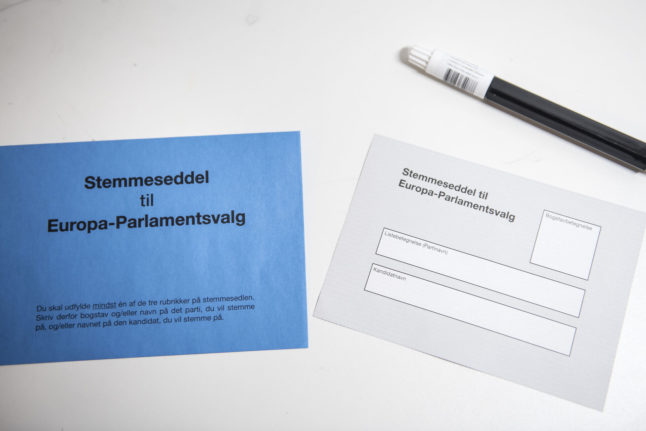Although the process of early voting is called “postal voting” (brevstemme in Danish), the voting ballot does not necessarily have to be sent by mail.
Advance voting can also take place at official locations including municipal Borgerservice (Citizens’ Service) offices, libraries or educational institutions.
For example, residents in second city Aarhus can vote at the city’s flagship Dokk1 library from Monday. In Copenhagen, a range of locations across the city, listed on the Copenhagen Municipality website, accept postal votes.
To vote by mail, you must attend one of the designated advance voting locations and must bring your ballot card (valgkort) and an accepted form of ID. Valid ID includes a passport, driving license, the yellow health insurance card (sygesikringskort) or the app version of the health card.
In EU parliamentary elections, nationals of all EU countries who reside in Denmark can both vote in the elections and run for office.
Nationals of non-EU countries cannot vote or run in these elections.
To be eligible to vote and run in the EU elections, you must either be eligible to vote in Danish general elections or be an EU national who resides in Denmark. You must be 18 years old or more.
Unlike with general elections, foreign-based Danes can also vote in EU elections in Denmark if they live in another EU country (but not a non-EU country).
READ ALSO: Can EU nationals in Denmark vote in the European elections?
“We are going to scale up after a while will also allow voting at selected libraries,” Aarhus Municipality’s head of election services Lene Hartig Danielsen told newswire Ritzau.
Advance voting is becoming an increasingly popular option relative to attending an polling station on election day.
The 2022 general election saw an advanced voting rate of just under 10 percent, the highest ever.
Advanced votes can also be changed if the voter has a change of heart between submitting the vote and election day. The most recent submitted vote is the one which is counted.
However, it is not possible to vote in person on election day if you have already advance voted.
It should also be noted that you can vote in any municipality, not just the municipality where you live.



 Please whitelist us to continue reading.
Please whitelist us to continue reading.
Member comments